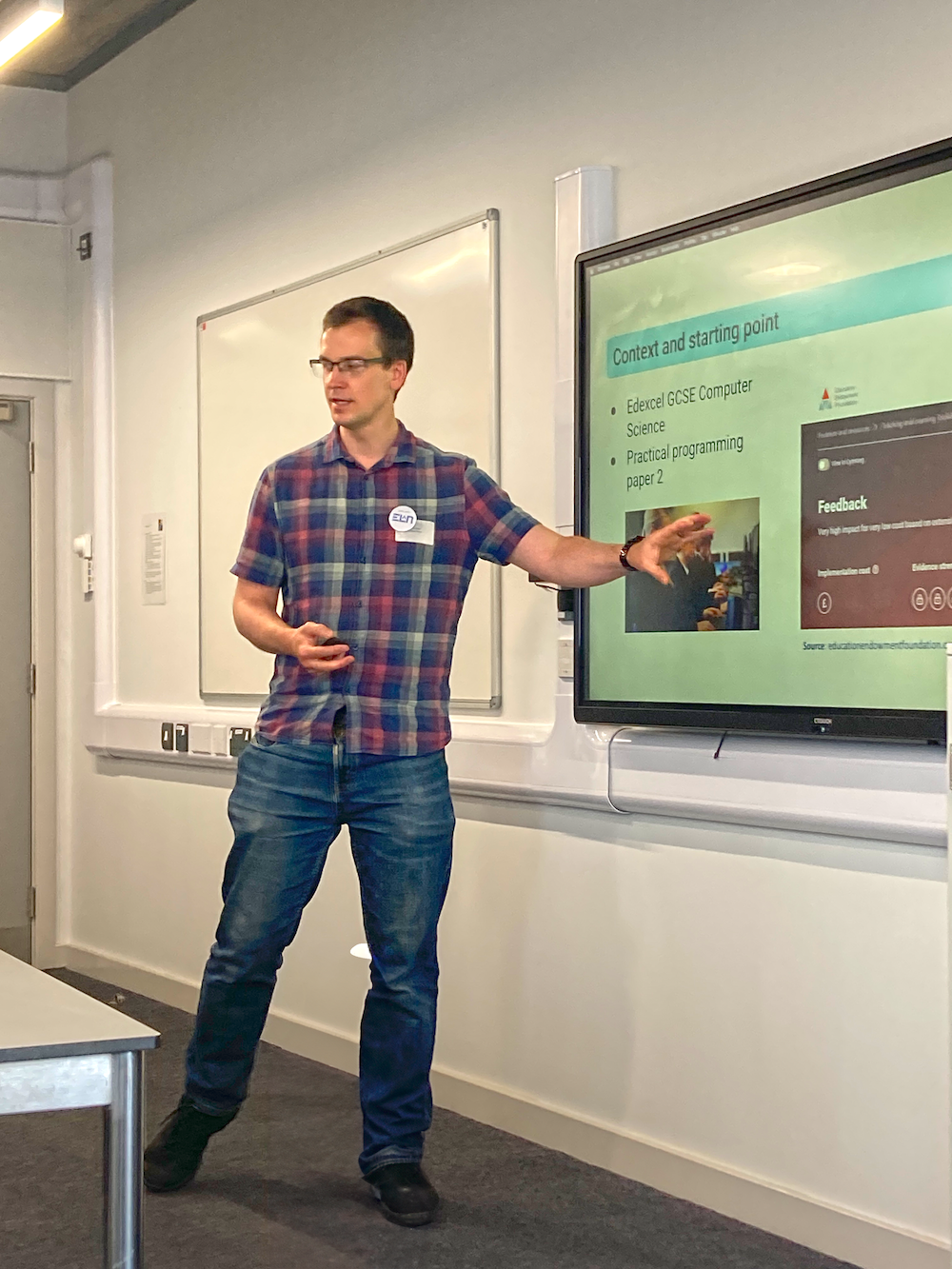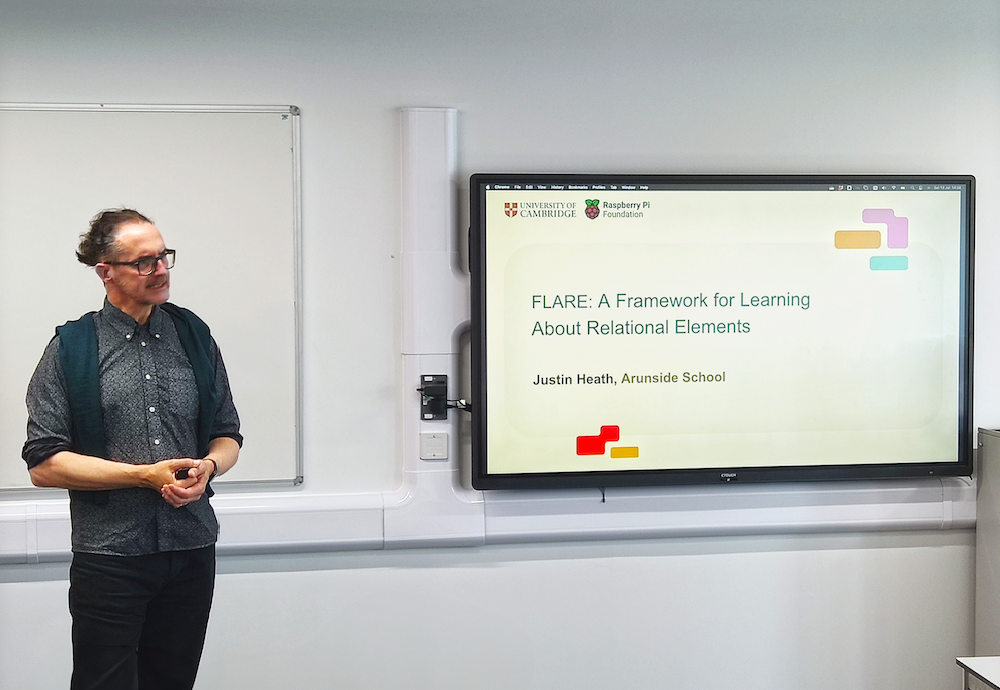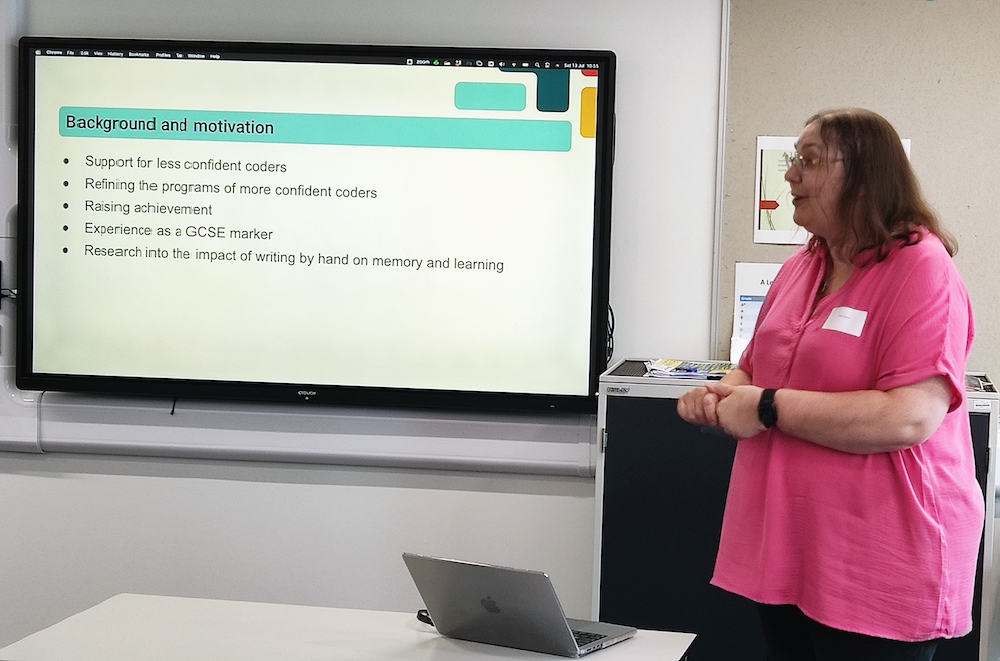As experienced professionals, teachers develop a deep understanding of their students and the particular context of their school. They have insights into which projects and approaches are effective, what motivates students, and how to facilitate learning. However, teachers rarely have the time or opportunity to investigate their instincts further and conduct their own research to explore why certain interventions succeed and what their students truly think.
To address this, we were very happy to be able to support computing teachers in their own research projects over the past year. This marked the second iteration of the Teacher Inquiry in Computing Education (TICE) initiative.
Paired with academic mentors, computing teachers selected topics that emerged naturally from issues they were either concerned or curious about in their classrooms. The TICE teachers created materials and surveys to test their assumptions and documented their experiences in the reports you will see in this booklet. We were delighted that they were able to present some of this work at the CAS conference on Saturday in both Session 1 and Session 3.
The range of computing topics teachers investigated was vast, encompassing both primary and secondary education. These inquiries were conducted from their unique perspectives and we hope will be of great interest to computing teachers seeking to enhance their practice or undertake similar projects in their own schools.

Next week, we will be sharing (via this blog and on CAS) how you can get involved with TICE3—the next iteration of the project, which will be starting in September.
Overview of research projects
Primary Phase

- Impact of using Litterbox on debugging skills: Rachael Coultart has investigated the use of LitterBox, a program analysis tool emanating from a research project in Germany, to support upper primary school children in code comprehension, debugging skills and perseverance.
- Deepening understanding of abstraction in block-based languages: Justin Heath has adapted the Block Model for code comprehension into his own model called FLARE, and investigated how this might be used in a primary context.
- Which PRIMM activities lend themselves to assessment? Jo Hodge has investigated both how PRIMM can be used as a formative assessment tool for primary children, and also the experiences of her colleagues using PRIMM for the first time.
Key Stage 3 (students aged 11–14)
- What is the impact of introducing artificial intelligence concepts and hands-on projects into the Key Stage 3 (Year 9) computing curriculum? Helen Copson wanted to know the impact of AI on motivation to pursue Computing at GCSE.
- How does participation in a data science art project influence Year 9 students’ perception of the relevance and usefulness of computing? Sophie Fenn followed a similar line of thinking regarding motivation for progression and looked into a cross-curricular approach.
- Can explicit teaching of computational skills actually improve computational thinking? John Ionides explored how explicitly teaching computational thinking might help his students approach new and challenging problems, especially those set in the Bebras competition.
- How does student engagement differ when using Scratch compared to Kodu for introducing computing concepts at the KS3 level? Rebecca Mack compared students’ perception of and engagement in programming using Scratch and Kodu, reporting that her students found Kodu more accessible and engaging.
Two projects focused on issues of diversity, particularly gender balance in computing:
- What are the factors that influence girls’ decisions to choose or not to choose Computer Science as a GCSE option in the context of our school? Alex Price used focus groups and surveys with the girls in her school to investigate what would influence their choice (or not) to choose GCSE computer science, with three emerging themes of usefulness, difficulty and interest.
- Integration of Computing across subjects: Ashish Upadhyay, our one non-UK teacher, investigated how computing can be introduced into other subjects to increase students’ interest in continuing their computing education.
Key Stage 4 (students aged 14–16)

- Impact of feedback on students’ engagement and progress in KS4 Computer Science: Can AI replace a good programming teacher? Pete Dring systematically looked at types of feedback and asked students what was most helpful. Something we all wrestle with no doubt, and it is perhaps no surprise to see that his students preferred to get any feedback on their work directly from their teachers!
- The impact of hand-writing programs on the accuracy of the code produced: Lorne Pearcey investigated the impact of hand-coding in programming, reflecting that the students enjoyed the hand-coding exercises and that it improved their confidence and accuracy in writing code. Given that several awarding organisations require this approach in the exam, this made for very interesting reading.
It’s not possible to do justice to the range and diversity of these fascinating reports here, so we encourage you to download the full report to read more about each project.
Finally, our sincere thanks to all those who participated in the project this year, and those volunteers who worked alongside them. We will be running the project again next year, so watch this space on how to apply!